(November 10, 2024) Driven by a mission to make gaming more than just a pastime, Aamir Ali shaped the student-led online game development initiative, Project Pixel, into a platform that combines the thrill of gameplay with a deeper purpose, turning each download and play session into a force for social good. The immersive 2D games operate on a ‘100 percent donation policy,’ ensuring that every penny earned goes directly to charity.
The recent computer science graduate from The University of Sheffield has transformed a shared vision with a friend into a groundbreaking initiative redefining the role of video games in society. The seeds of Project Pixel were sown one and a half years ago when Aamir and Najaaz Nabhan, a student from Sri Lanka, envisioned creating a positive impact through gaming. Their student-led venture at the University of Sheffield engages over 25 students across different fields such as computer science, engineering, and humanities. For Aamir, now a data science professional at the UK-based multinational Gymshark since July, Project Pixel has been an opportunity to prove that gaming can transcend entertainment and serve as a tool for giving back.
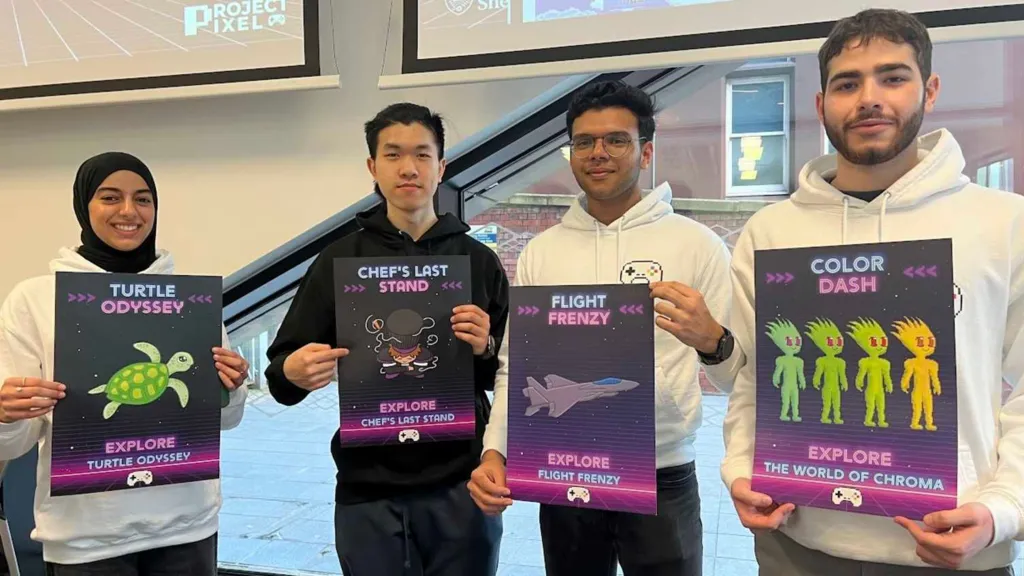
Project Pixel team members
“We would love to inspire students at other universities and turn this into a global movement. Everyone at Project Pixel has shown that it doesn’t matter what degree you’re studying or whether you know anything about game development – you have a chance if you have the passion and willingness to learn,” Aamir shared in an interview.
A new kind of gaming initiative
Gaming is a rapidly expanding sector with a vast audience, and Aamir recognised its untapped potential for charitable efforts. Traditional gaming-related charity initiatives often rely on sponsorships and donations from players. Project Pixel, however, takes a different approach by developing original games whose proceeds go directly to charitable causes, making every player’s engagement impactful.
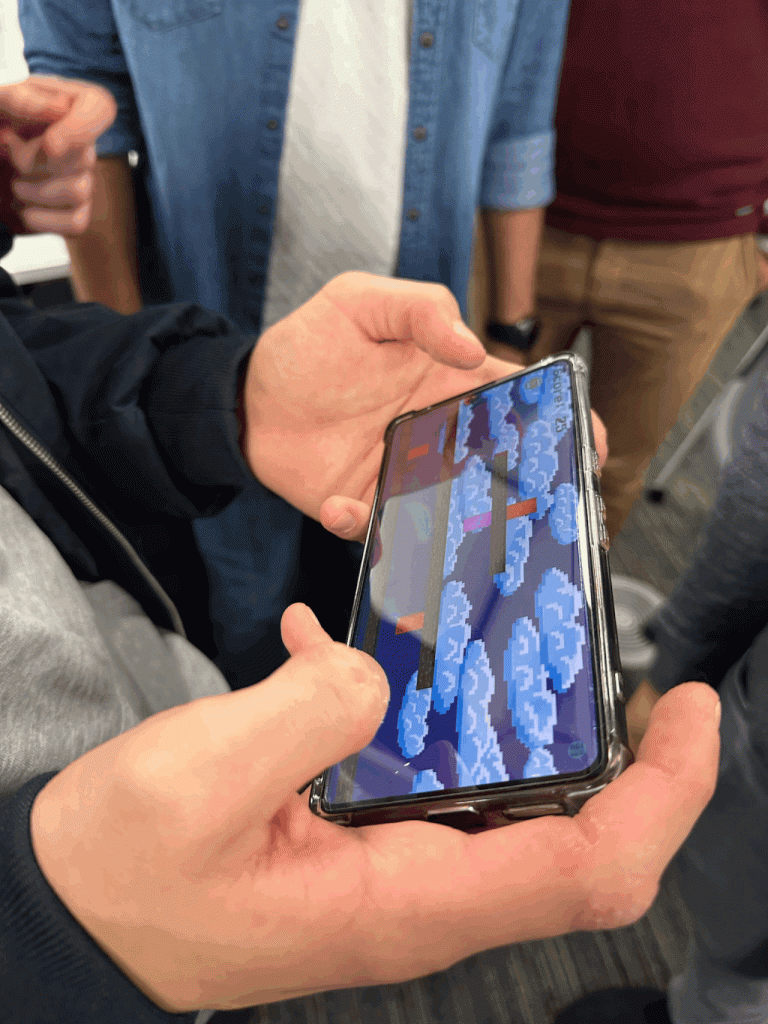

A 2D game created by Project Pixel
Learning by doing
Project Pixel is also a hands-on learning experience for students engaged in it. The team welcomes members from all academic backgrounds, even those without previous experience in game development. By providing students with a space to explore areas such as programming, sound production, graphic design, and story development, Project Pixel serves as a bridge between academic knowledge and industry practice. Each member brings a unique set of skills, from arts students working on character design to science students handling technical programming. This multidisciplinary collaboration enriches the games and allows participants to gain experience in various facets of game production.
“As the project started to develop we quickly found that lots of students from all over the University of Sheffield, who are studying on all kinds of degree programmes, are passionate about gaming and want to work in the industry, but they are not sure how or where to start, ” Aamir shared. “Project Pixel has given us all the opportunity to learn about game development together and take our first steps in the industry, whilst also doing something good for society.”
Their university’s support for the initiative has been instrumental. Through the Faculty of Engineering’s co-curricular activities fund, the team secured funds to buy a publishing license for Google Play, allowing them to bring their creations to a wider audience. For Aamir, leading Project Pixel has meant guiding a team through the challenges of real-world game development while creating a culture of inclusivity and shared purpose.
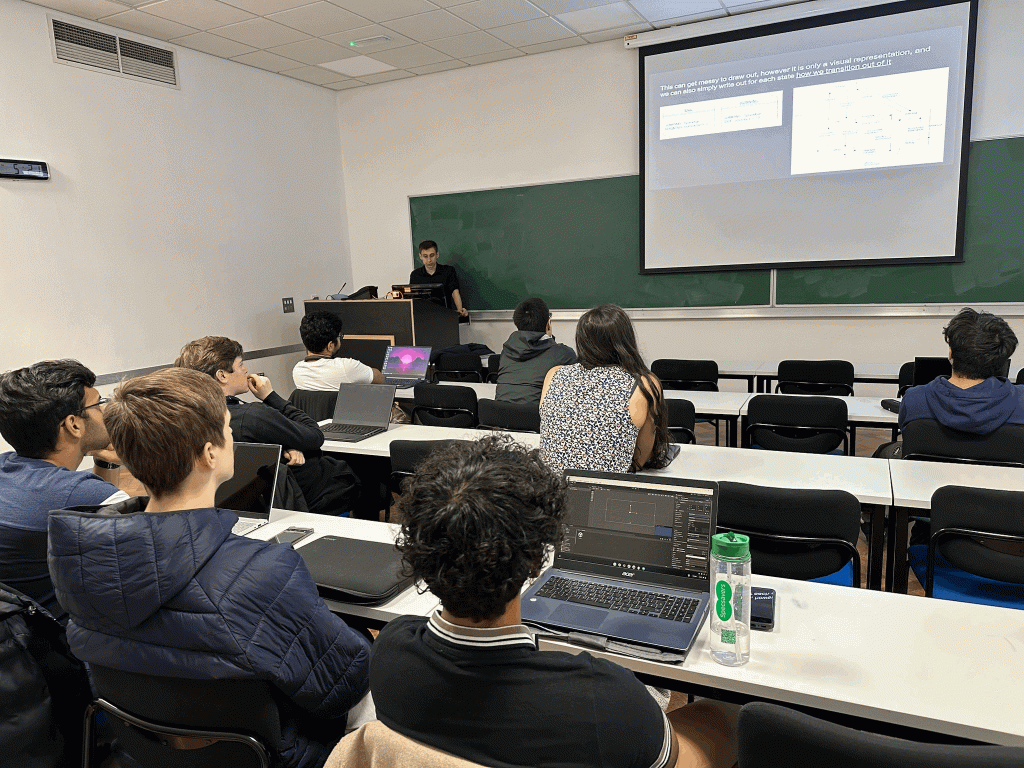

One of Project Pixel’s team sessions
Storytelling with heart
The Project Pixel team has released four games, each with its own story-driven themes. Project Pixel’s first game, Color Dash, takes players into a world drained of color by an evil sorcerer. The player embarks on a quest to bring color back by gathering vibrant orbs, a journey symbolizing hope and resilience. This message reflects Project Pixel’s own commitment to spreading positivity in the gaming world, proving that even virtual landscapes can carry powerful themes.
Their second game, Flight Frenzy, follows the daring adventures of a pilot navigating a challenging world filled with obstacles like skyscrapers, birds, and turbulent weather. Players must collect resources like fuel and ammunition to keep flying, making quick decisions that test their reflexes and resource management.
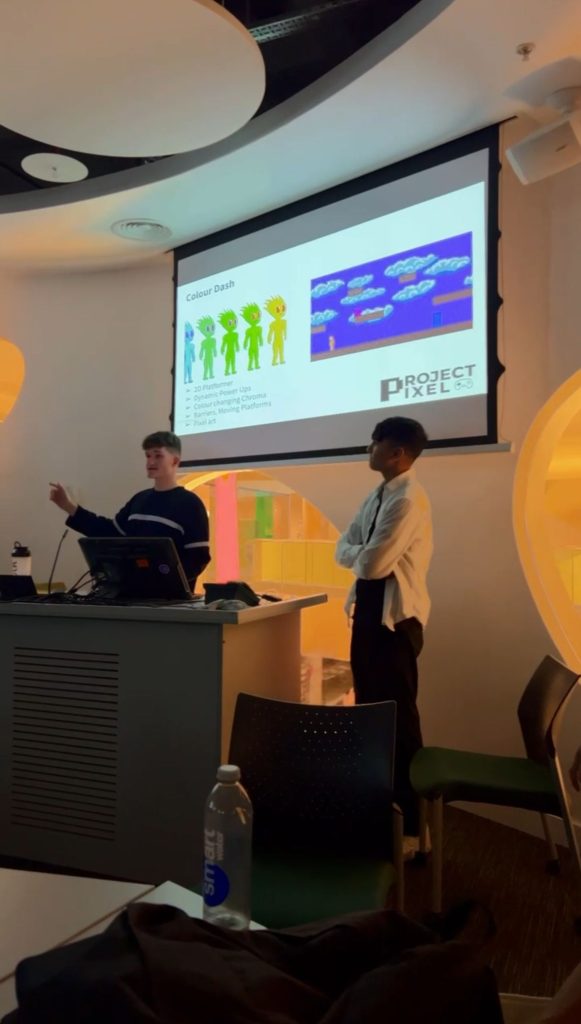

One of Project Pixel’s presentations
Turtle Odyssey is about different stages of a turtle’s life and how it sails through various obstacles. While the fourth game, Chef’s Last Stand is level-based, where players place chefs of different strengths strategically to fend off waves of mice. It is about achieving success by defeating all waves without losing health. Each game is crafted not only for enjoyment but also to inspire players, reinforcing the project’s mission to make gaming a platform for change.
Industry support and guidance
The journey of building Project Pixel has not been without its challenges, and Aamir and his team benefited from guidance along the way. They have collaborated with Sumo Digital, a video game developer based in Sheffield, to gain insights into effective game design and development. “Meetings with Sumo’s Director of Education Partnerships, Jake Habgood, offered valuable industry perspectives,” shared Aamir highlighting how his team refined their approach and ensured that each game meets professional standards.
For Aamir, this project’s practical experience has enriched his own professional journey. Since joining the multinational company, Gymshark as a data science professional in July, he has applied the lessons learned from Project Pixel, from teamwork and collaboration to project management skills that he carries forward in his role.
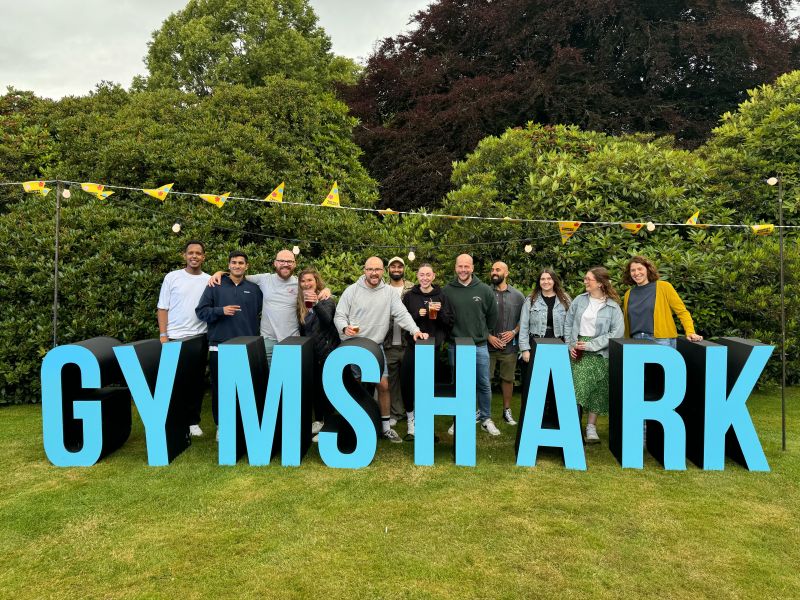

Aamir (second from left) with the Gymshark team
Looking ahead…
Project Pixel’s ambitions reach beyond the University of Sheffield. Aamir and Najaaz have always hoped that their initiative can inspire similar projects at other universities worldwide, creating a network of young developers who use gaming as a tool for social good. The project has already made a significant impact within the UK, standing out as one of the largest student-led gaming initiatives dedicated solely to charity. By demonstrating what is possible when young people unite their passions for a common purpose, Project Pixel hopes to create a new wave of gaming for good.




